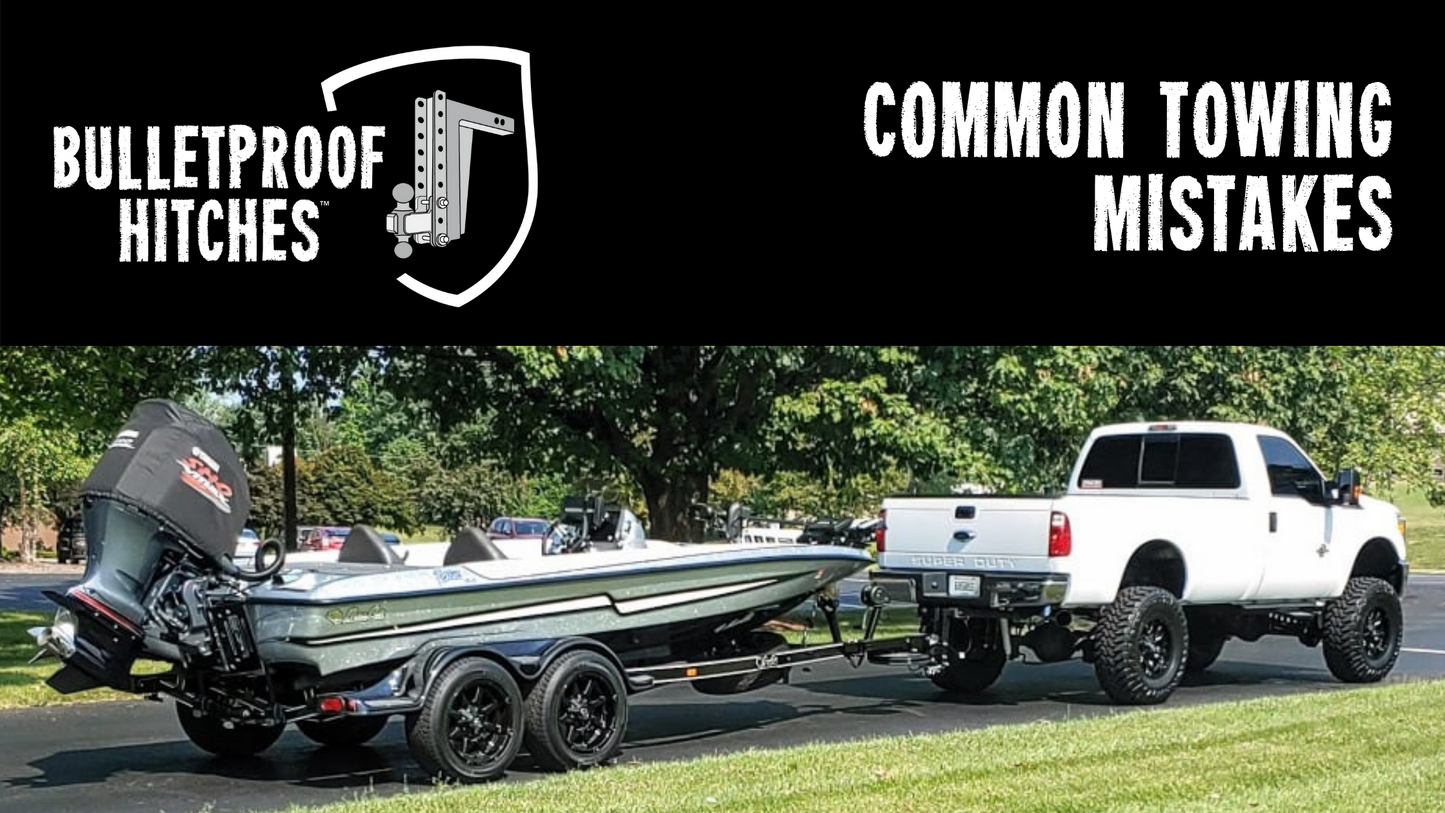
Towing safely comes down to a few things that everyone who owns a trailer must do. Some of these below may seem simple but are consistently overlooked. Generating a list of common mistakes can make it a little easier to avoid being “that guy” on your next road trip with a trailer hooked up. The top 4 that have been noticeably common are listed below along with how to avoid them during your next trip.
1. Overloaded vehicle and trailer:
It is important to load the vehicle and trailer correctly. You need to properly balance the load within the trailer, this would be placing heavier items towards the vehicle. Improper loading of the trailer will affect how it handles on the road. For this, the number one suggestion comes from a previous blog post. Your tongue weight should be a maximum of 15% of the total of your trailer weight. If the rear is overloaded it could cause damage to the trailer as well as your vehicle. Weight distribution is crucial in making sure your trailer is going to handle correctly. If your trailer is overloaded it could lead to trailer sway which is dangerous for not only you and your truck but for everyone else on the road. BulletProof Hitches offers a sway control system to assist in cutting down trailer sway with larger trailers to make the towing experience safer. It is also incredibly important to not only balance front to back but also side to side. Unbalanced on the left or the right could also lead to the risk of overturning the trailer while turning. Ensuring that you have properly loaded the trailer will create a smoother experience as well as a safer one.
2. Improper Tire Pressure:
Before going on a trip, you need to check the tire pressure not only on your vehicle but also on your travel trailer or what you are towing. Under inflated tires can be dangerous and you should consult your owner’s manual preventatively for the proper tire pressure. You should also never over inflate your tires past their PSI but you may want to increase the pressure past what you would normally put them at due to the fact that a loaded trailer will press the pressure out and allow for a smoother pull.
3. Improper set up of hitch and trailer coupler:
It is always important to do an overall safety check prior to towing in order to reduce risks such as tire blowouts or trailer detachment while towing. There are plenty of ways to check and DOUBLE check that you have set up your truck, hitch, and trailer properly. Once you are lined up and have gotten the trailer coupler on top of the ball you need to attach the proper pins to make sure everything is connected correctly. The proper pins would attach the hitch to the receiver tube as well as the ball to the channel. The next step after that is to secure safety chains, crossed to create a cradle and making sure the chains do not touch the ground. You also should ensure the integrity of your trailer's breakaway cable. This is here in order to ensure the function of your brakes are in-sync with your trailer or in the case of a disconnection from the trailer that the trailer brakes will activate.
Trailers on the hitch, but did you connect the electrical connector to your truck? Once you connect the electrical connectors, test to make sure that all lights work the way they are supposed to, double check the brake lights work and both turn signals.
4. Lubrication:
Although failing to lubricate the hitch and coupler will not necessarily result in failure while towing, it does cause metal on metal friction which is not good for either half of the set up. The friction will cause damage to both the hitch and the coupler. The technical team at BulletProof Hitches recommends using a thin layer of our anti-friction grease on the ball every time that you tow, it is also suggested that you place grease inside of the coupler. This will allow for the ball of the hitch to remain in solid condition while towing.
Towing is like a science, you have to find your correct formula to have the best towing experience. These are some simple tips that are commonly overlooked or forgotten and hanging onto these 4 tips will help you to have a safe tow.
Happy Towing!
